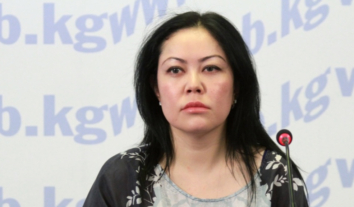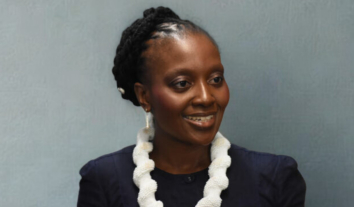Six most common Russian propaganda narratives used against Ukrainians
To prepare the minds of Russians for a loyal perception of war crimes and genocide committed by the Russian Federation against Ukrainians, the aggressor country’s propaganda uses various narratives. The most common of them can be divided into several categories. I will list them below.
1. The use of World War II archetypes – the Nazis are enemies, and therefore must be destroyed. Gradually, this construction is being eroded, and the narrative that “Ukrainians are Nazis” and, thus, enemies who must be destroyed remains in the minds of Russians. It is this narrative that forms the basis of most Russian propaganda.
When people in Russia said that “Ukrainians are Nazis” for ten years, we laughed at this. But now, this construction has taken root in the minds of Russians. And now they are convinced that Ukrainians must be destroyed because “Ukrainians are Nazis.”
2. The narrative of “Banderites.” In the Ukrainian cultural space, “Banderites” has a positive connotation, as Bandera fought for Ukraine’s independence. In the minds of Russian citizens, however, “Banderites” has a definite negative connotation. That is, for them, “Banderites” are Nazis who are their enemies and must be destroyed. This logical chain, built in their minds, disappears, and only the narrative that they must be destroyed remains in their minds.
3. Narrative about terrorists. It is used very often, especially recently. Even ten years ago, it was not heard so often in the Russian information space. However, it began to spread actively during the full-scale invasion because of the guerrilla movement and massive resistance to Russian aggression. And now, all manifestations of Ukrainian resistance in the occupied territories are regarded by the Russians as terrorism. That is why they fabricate criminal cases under terrorist articles against civilian hostages whom they illegally detain. In other words, Russia calls these people terrorists and imprisons them for it.
In particular, our organization regularly documents cases of persecution of Crimean Tatars: they are all accused of terrorism. It helps Russian propaganda to form the image of a “Ukrainian terrorist” and label us as such.
This narrative was used during the Chechen wars when Russians were destroying the Chechen people who were fighting for their independence. That’s when Putin’s infamous phrase about “soaking terrorists in the toilet” came about. Now, they are using this narrative against Ukrainians. Their propagandists often use this quote on TV: that is, they used to soak Chechen terrorists, and now they are soaking Ukrainian ones.
Interestingly, this label is used metaphorically. Propagandists compare Ukrainians not just to terrorists but to the Islamic State. The Russians even came up with a special name, UDIL (Ukrainian State of Ivano-Frankivsk and Lviv – Ed.), which is similar to ISIS.
When the terrorist attack in the Moscow region took place, they said that it was done by Ukrainians together with ISIS. Even though the Islamic State claimed full responsibility and Ukraine had nothing to do with it, Russian propagandists continued to say that Ukrainians were the terrorists. In other words, the idea is being conveyed that Ukrainians are as horrible as the ISIS members, so they must be destroyed.
Such labels show a direct link between hate speech and war crimes. For example, after the terrorist attack in Crocus City Hall, Russian propaganda started to use narratives that Kharkiv should be “quarterly” attacked because “Ukrainians are terrorists.” And now we see them shelling Kharkiv every day. In this way, war crimes committed by the Russian military are justified in the minds of their citizens.
The Russians also use the narrative of terrorism because the international community is terrified of the concept of terrorism. After all, there are real terrorists, such as the Islamic State. The Russians appeal to the fact that Ukrainians are also terrorists and put us on the same level as ISIS. Therefore, when we talk about the fact that Russians are labeling our political prisoners and making them terrorists, the international community is suspicious of such cases. It is precisely what Russian propaganda is playing on. With their messages, they try to appeal primarily to foreigners to hide the political persecution of Ukrainians in Crimea. And then it is very difficult for us to prove that our people who have been convicted under terrorist articles are not combatants or terrorists or war criminals. We need to make a lot of effort to convince the international community that this is the narrative that Russians are using to prepare for genocide against Ukrainians.
4. The narrative of dehumanization based on religious beliefs. It is when, for example, Ramzan Kadyrov says that all Russians are warriors of light. They are the army of God, and this is a holy war against the antichrist. For him, the antichrist is Ukrainians. There was even a broadcast during which Russian propagandists tried to prove that Zelenskiy was the antichrist and we were all his servants. In this way, they appeal to the mythical thinking of their citizens who believe in the Russian patriarchate. This narrative is intended for all Russians and Chechens living in Russia.
5. Vertical narratives. Top officials, in their public speeches, do not allow themselves to make direct calls for genocide. They never say: “We are going to kill all Ukrainians.” Putin talks about “denazification,” but he does not explain in his speeches what exactly he means. To do this, he has a whole pool of TV hosts or opinion leaders who then explain on live TV what “denazification” means. Decomposing this concept into its components, they conclude that “denazification” requires the physical destruction of all Ukrainians. Again, we hear narratives about “Ukrainians being Nazis and enemies of the people.”
The neutral phrase itself gradually turns into a call for genocide. These calls for genocide then translate into the actual war crimes that we are all witnessing now.
There are many speakers, and they are not just propagandists. They invite people who impact the minds of certain categories of citizens. These can be writers, political scientists, military experts, or doctors. For example, an oncology surgeon who has great authority in his community says that Ukraine is a cancerous tumor that needs to be cut out. He uses metaphors to convey all these messages to his audience.
The Russian philosopher Dugin explains that the Ukrainian idea means all Ukrainians, and therefore it should be destroyed.
This narrative is spread on radio, TV, and social media. These propagandists and so-called opinion leaders have between a hundred thousand and a million followers. And the hate speech there is much more brutal.
6. The narrative is that Ukrainian prisoners of war are fascists and terrorists who should be executed. They often talk about this in their broadcasts, and then we watch videos of actual torture and executions of our military. It is a direct link between the narrative and the criminal act, so we have to talk about it.
To fight Russian narratives, we have to collect evidence showing the scale of this propaganda and the repetition of these narratives. It will also make it possible to prove that the Russians are constantly fabricating all criminal cases against Ukrainians and Crimean Tatars because there is evidence that these cases are entirely fabricated.
Plus, we will have to prove that this narrative is spread through the vertical of power. That is, the call for genocide comes from the top to various propagandists who are constantly involved in the information war.
Together, we can show the whole picture and prove this is all an information war. In reality, there is no such thing as “Ukrainian terrorists” but only information aggression, which is spreading very rapidly. That’s why we focused on collecting this evidence, systematizing it, and creating a separate database.
It will be public so people can research how the narrative is spread, by whom, and with what tools it is spread. We also plan to translate it into English to show our database to foreigners.
Speech by Iryna Sedova, expert of the Crimean Human Rights Group, during the discussion, “How Hate Speech Is Related to War Crimes?” at the Docudays UA festival














